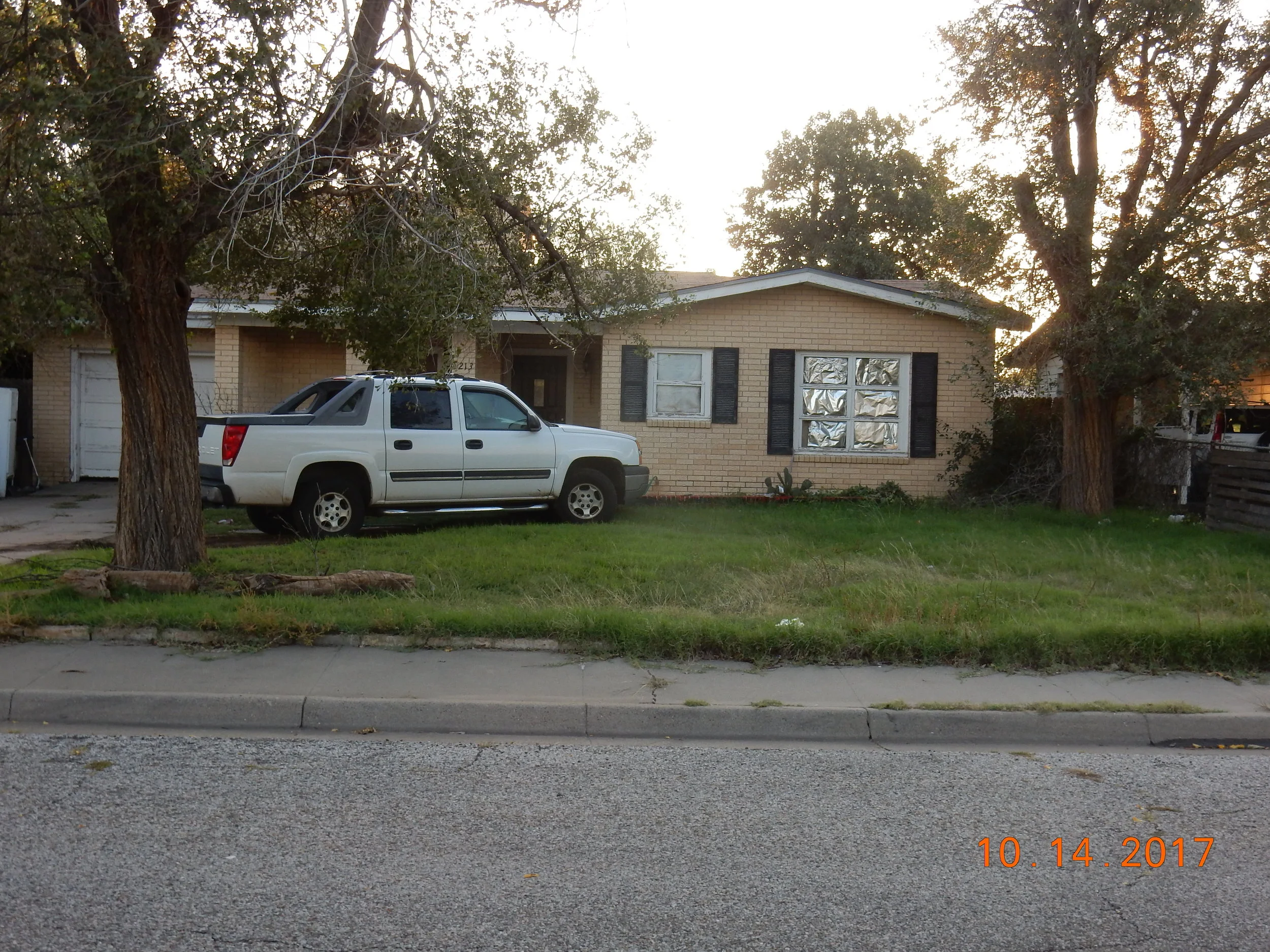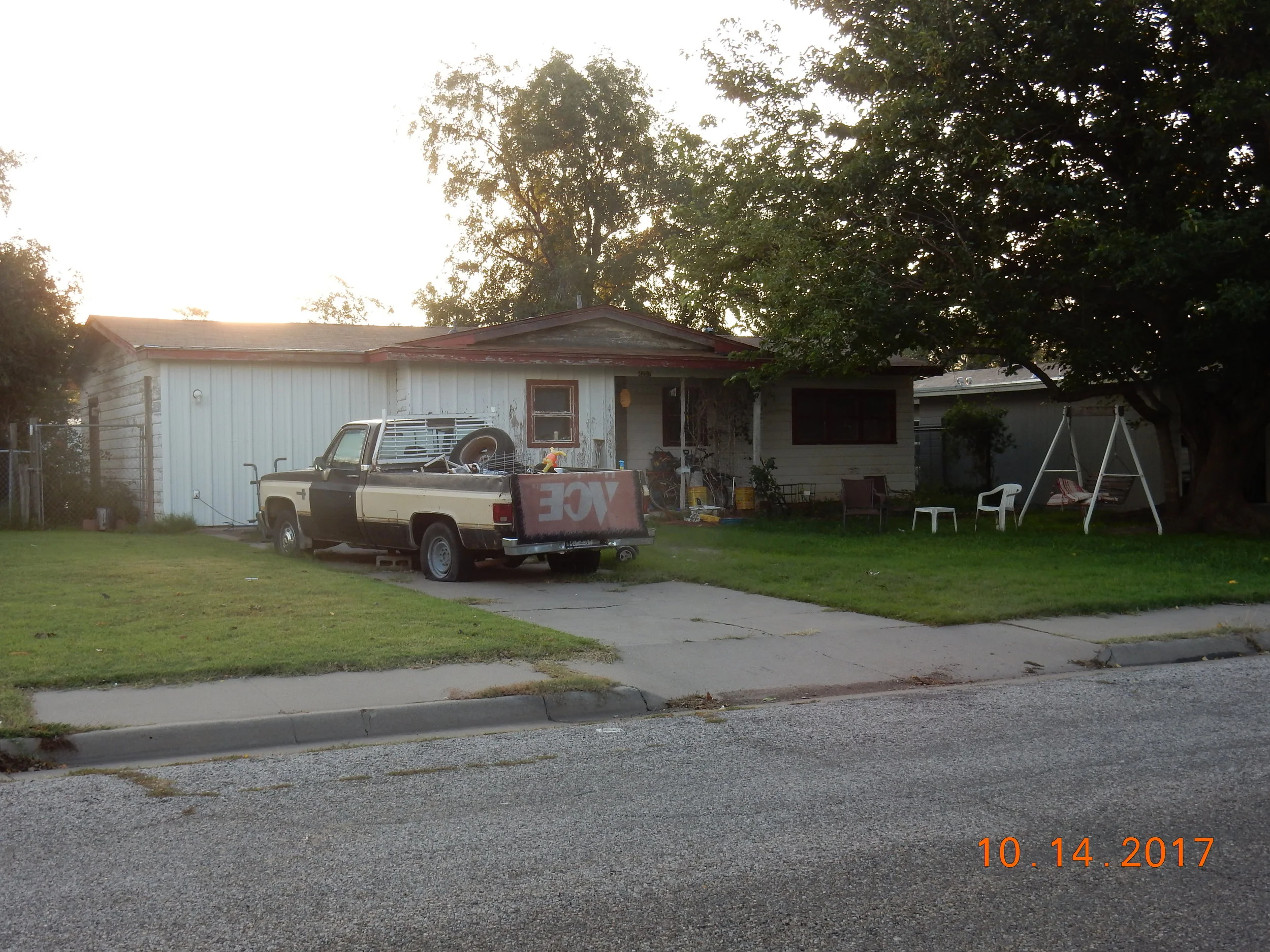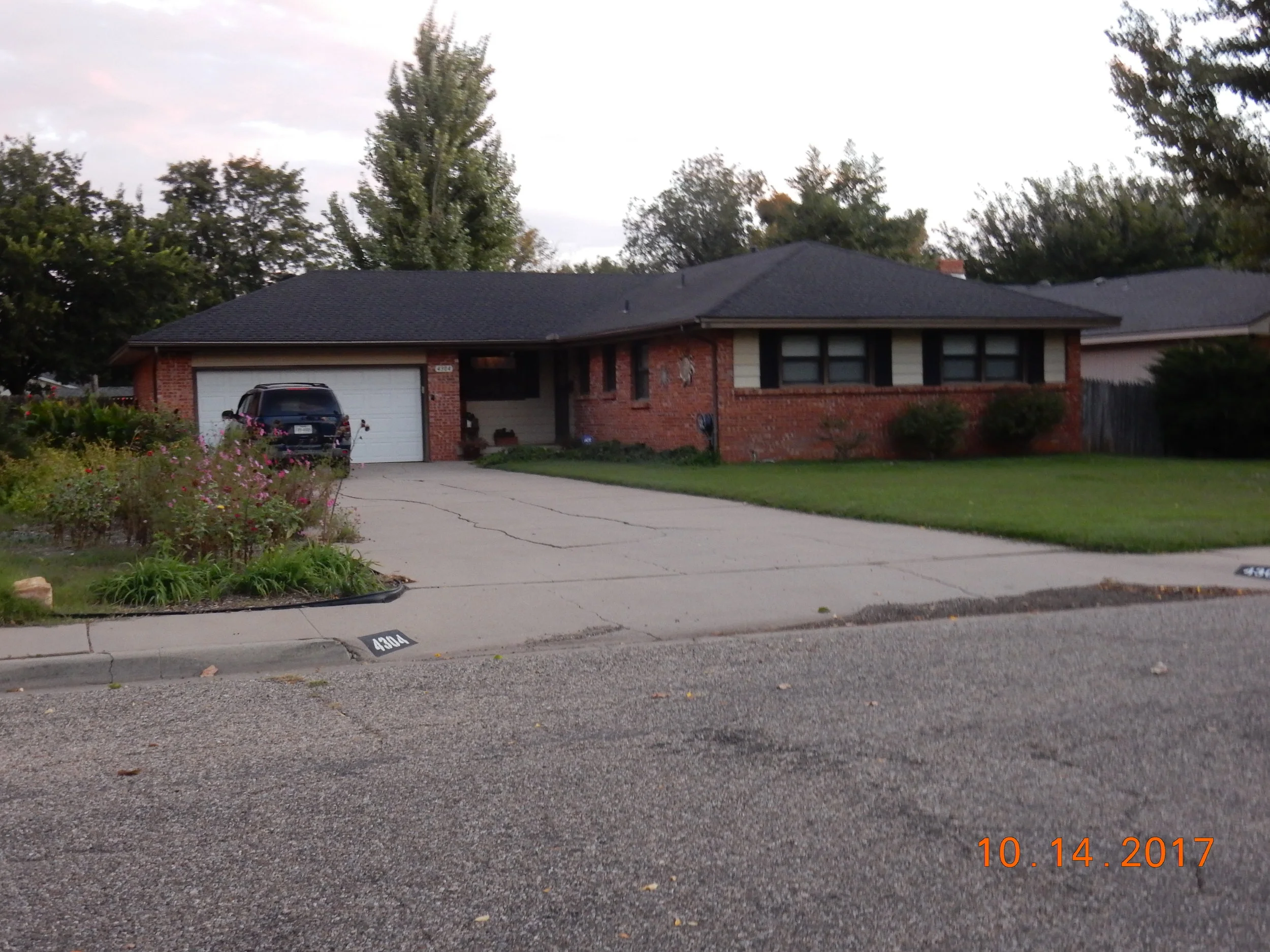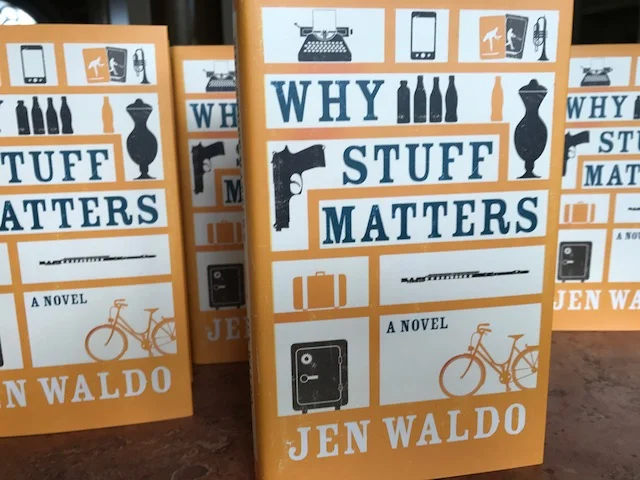I was born and grew up in Amarillo, Texas. Other than my deceased father’s wife, Linda, I don’t know anyone who still lives there. And technically, she doesn’t live in Amarillo; she lives half an hour east, in Washburn, a flat grid composed of dirt roads and small houses in weedy lots.
As the drive from Colorado to Marble Falls will take us through the panhandle, David and I decide that we’ll stop in Amarillo and revisit our old hangouts. Also, Linda is in possession of my father’s photo albums, which hold his favorite memories—pictures from his childhood, report cards from his school days, and the article in the paper announcing his US citizenship. Daddy led an interesting life and I’d like to ask for copies of a few of these things, which I’ll gladly pay for.
I put a signed copy of my latest novel in the back seat, thinking that I’ll be seeing Linda and that she might appreciate it.
“I can’t get hold of her,” I tell David the night before we leave Steamboat Springs. “The number I have for her has been disconnected. I messaged her through Facebook, but she never got back to me. And I don’t have her email.”
“We’ll figure something out when we get there,” he says.
“My cousin said her daughters have been asking for thoughts and prayers on Facebook. Maybe something’s wrong.” How will I ever know if I have no way to reach her? We pack up that night and leave early the next morning.
As we’re getting closer to Amarillo we see things that take us back—Boys’ Ranch, Vega, Cadillac Ranch. The wind farms stretch from the highway to every horizon. Because of the wind that never ceases, the stench from the cattle yard outside of Bushland pushes us eastward.
I haven’t spoken to Linda since Daddy’s funeral. Bad of me, I suppose, but we moved to Kuwait, came back to Houston, moved to Singapore, then came back to Houston. Then we moved to Marble Falls. Being an ex-pat was a self-involved lifestyle and I tended to think only of the person or situation in front of me.
“I want to drive by Charles Street,” David says. He always refers to his childhood home by the street name, as though he had the run of the whole block instead of just the one house—though I guess this is understandable because, from what he’s told me, he and his neighborhood pals were in and out of each other’s houses constantly.
“And we’ll drive by the house on Fannin, too.” And just saying the street name brings the recollection of a game my sister and I, and all the neighborhood kids played in our front yard on summer evenings. When headlights turned on to the street there was a complex list of tasks to perform and bases to touch before the car reached us; and if we didn’t get it all done in time, we were DEAD.
We spend the night in a hotel on I-40, with a plan to get up and take a nostalgic tour before heading back to Marble Falls. I still haven’t been able to get hold of Linda. I call the hospice care place where her profile says she works, but it no longer exists.
“You want to go out there?” David’s talking about Washburn.
“Getting home is a long drive,” I tell him. “And we don’t know if she’ll even be there. She might have moved.”
So we settle on the plan of going by his house, then my house, then hitting the Canyon Expressway and heading south.
Charles Street has aged elegantly. The trees cast a pleasant shade and every house has flowers in the window boxes and green grass, which is a phenomenon in this part of the world.
“It looks a lot better than when we lived here.” David gets out to take pictures to show his sister and brother.
The route to the house where I grew up becomes rougher and more derelict the closer we get, until, when we turn on to Fannin, I’m appalled.
“It’s like the Third Ward.” It never was the richest part of town, but it’s become a slum. Every house has a lopsided couch in the front yard, or a couple of rusty cars in the driveway, or a refrigerator on the porch. Old broken stuff is everywhere. Hoarders occupy every house on the block, which is profoundly disturbing. I have zero tolerance for clutter.
Our house. My father who, by himself, bricked it in and added a three-story addition, would be horrified to see a truck parked across the front yard, weeds in the raised beds, and foil on the windows. The trim is in awful shape. The garage door doesn’t fully close. There’s a tilting refrigerator over by the fence.
David stops across the street and gets out to take some pictures.
“What kind of people just let things go like this?” I ask him when he gets back in.
“Poor people.”
“People who have meth labs in the basement.” So I’ve taken two hits today. The house I grew up in has become a slum. And I don’t have, and apparently never will have, a single picture of my father.
David sighs. He doesn’t like it when I’m unhappy and he can’t fix it.
“Let’s get back to a civilized land,” I tell him. “Where the HOA doesn’t allow people to throw their ugly old junk in their front yards.”
We head home knowing we’ll probably never see Amarillo again.
My childhood home. Can you see the refrigerator on the left? The truck is nice.
My sister, Trina, was once friends with the girl who lived in this house.
David was right. His childhood home looks a lot better now than it did thirty-five years ago.
A plea. Please, if you've ordered and read Why Stuff Matters, would you post a review on amazon.co.uk? It'll only take a few minutes and it'll support my book. Thanks.





